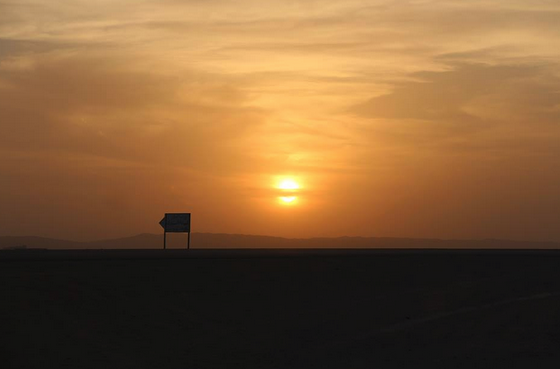Recently, I received an invitation from Saudi Aramco to deliver a speech in the Eastern Province peninsula town of Ras Tanura, Saudi Arabia. I was welcomed as a member of the Saudi Aramco family, and not just a visitor. This was not my first time delivering a speech for this great company. I decided to travel to the eastern region by car, because travelling by road takes almost the same time as an estimated flight to Dammam airport from Riyadh, and I wanted to be able to use my phone during transit, which is not permitted when flying.
I was amazed when I entered the highway going from Riyadh to Dammam, where I was greeted on the road by a huge fleet of trucks occupying two of three lanes of the road for most of the trip. At one point, it appeared to me that I not really travelling on the highway, but rather watching a great parade of Saudi trucks dominating the road.

Typically, when one sees a lot of trucks loaded with goods, this is an indicator of economic growth and prosperity. This is true in Saudi Arabia. But seeing a lot of trucks in a very small space is a matter of concern. What is certain is that the trucks cause – along with the obvious problems such as accidents and disasters – a great deal of environmental pollution.
As a consistent user of the highway from Riyadh to Dammam, it is shocking that despite Saudi economic prosperity, this highway has hardly changed during the last twelve years, with the exception of a handful of new, and scary in terms of safety, bridges. In fact, the quality of this highway has deteriorated intensely as a result of the excessive use of trucks traversing the road. Subsequent development brought Saher (speeding) cameras to monitor and punish speeders along this road; I counted at least a dozen cameras on my way to Dammam. These cameras did little to deter reckless driving and speeding, and other than the occasional predictable checkpoint, there was hardly a police officer in sight.
When returning to Riyadh on the same highway at night, the problem of truck dominance of the highway did not abate. Neither did the reckless driving, speeding and other unsafe driving practices despite the presence of Saher cameras. If a fast driver wants to overtake another vehicle in the only lane available for cars, he is forced to use the shoulder, and that appeared to be a frequent act of real madness, because the real service road is not fit for passing. This situation makes the risk of traffic accidents very high. Add to all of this, about half of all cars had covered plates to avoid detection by surveillance cameras. In all countries there will always be drivers willing to violate the traffic laws, but the only way to control them is achieved through the reinforcement of the traffic patrols and raising fines for offenses and penalties that cannot be solved with money, such as confiscation of cars and driving licenses immediately.
Saudi Arabia is experiencing more than 300,000 traffic accidents every year. These road traffic accidents lead to more than 30% of cases of occupancy of hospital beds, according to Dr. Abdullah Rabeesh, director of Dammam University. On average, road traffic accidents lead to the deaths of 20 people per day in the Kingdom. These incidents are considered the leading cause of death among young males aged 16 to 36 years. Traffic studies conducted in the Kingdom indicate that the annual volume of material losses caused by road traffic accidents is about 21 billion riyals; nearly about 4% of the national income in Saudi Arabia. If current trends continue, the Kingdom might experience more than four million traffic accidents a year by 2030. For comparison, there were about four million traffic accidents led to the death of 86 thousand people in the last two decades.
It is absolutely possible to improve circumstances of the Riyadh – Dammam Highway and other highways that connect parts of the Kingdom together. When railways and high-speed trains for passengers and other trains for shipping are introduced, along with raising the prices of diesel to make the railways the main and least expensive method to transport goods, the safety of Saudi Arabia’s highways will improve. Doing so – reducing the number of vehicles that use the highways – will reduce road traffic accidents and to some extent reduce carbon emissions, as well as lessening the burden of the maintenance of these roads.
I beg of the Ministry of Transport: save the highways before it is too late.









